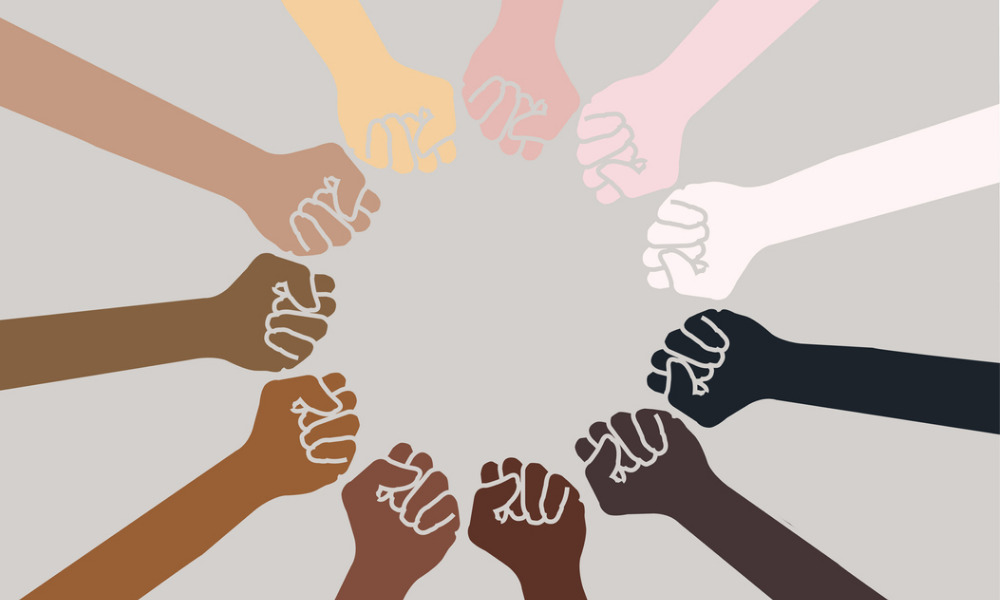‘Brands and companies that issue a statement in support of racial equality need to follow it up with concrete action’

More than half (56 per cent) of Canadians say there is evidence of racism within the organization they work for, according to a report from communications firm Edelman.
What kind of evidence? Lack of diversity among executive leadership team is at the top (18 per cent). However, while this is an issue for 15 per cent of Caucasians, this is a bigger problem cited by Asians (26 per cent), Indigenous people (24 per cent) and Black Canadians (22 per cent).
Twelve per cent of Caucasians also say there is a lack of diversity among managers and supervisors. The number goes up among Asians (22 per cent), Indigenous respondents (21 per cent) and Black people (28 per cent).
Lack of diversity on the board of directors is also an issue for 12 per cent of Caucasians, compared with 20 per cent among Asians and Indigenous people and 29 per cent among Black people.
Fewer Caucasians (10 per cent) also report seeing micro-aggressions compared to Asians (16 per cent), Indigenous people (22 per cent) and Black Canadians (33 per cent).
With the pandemic anti-Asian racism is a challenge for many employers, according to one expert.
Damaged relationships
Over two in five Canadians (41 per cent) say racism in the workplace has damaged their relationship with their employer, as they now have less trust, less loyalty and less advocacy, according to Edelman.
This is once again far more common among the Black (79 per cent), South Asian (63 per cent), Asian (54 per cent) and Indigenous (40 per cent) communities compared with the Caucasian community (32 per cent).
This is also far more common among workers aged 18 to 34 (59 per cent) and 35 to 54 (36 per cent) compared with those 55 and up (17 per cent).
“With few exceptions, the business community has done very little in the way of concrete actions to address systemic racism in our country,” according to the Edelman Trust Barometer 2021. “Brands and companies that issue a statement in support of racial equality need to follow it up with concrete action to avoid being seen by me as exploitative or as opportunists.”
While two-thirds of Caucasians (64 per cent) believe that their organization is making progress in this fight, far fewer Asians (52 per cent) and Indigenous respondents (52 per cent) agree, found the survey of 2,000 respondents conducted in May.
CEO expectations
More than eight in 10 (84 per cent) of Canadians expect CEOs to do something in response to systemic racism and racial injustice.
More than half (53 per cent) of Canadian respondents expect CEOs to institute a policy of zero tolerance of racism within their organization. This number jumps to 66 per cent among the Indigenous population.
Also, 37 per cent of Canadians and 54 per cent of Indigenous peoples expect CEOs to ensure there is ethnic diversity on the company’s board.
Nearly a third of Canadians also expects CEOs to: ensure that their workforce at all levels is racially represented (36 per cent) establish programs within the workplace to foster growth and career development of racially diverse employees (35 per cent)
More than a quarter of U.S. employees say company leadership has done little to nothing to actively address issues of racism in the past year, according to a recent report.




